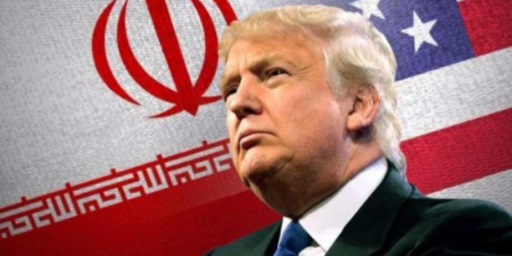Dealing
Don’t expect a “Green Revolution” to save us from having to face the challenges posed by the Iranian regime. Although some, like Gerald Seib, remain optimistic:
Yet slowly, things appear to be changing. For one thing, the world increasingly views Iran’s mistreatment of its own dissidents as a problem on a par with its nuclear program. One small sign of this came Thursday in the U.S. Senate, where a bipartisan group of senators unveiled a bill that would compel the Obama administration to target economic sanctions on Iran at officials who abuse their citizens’ human rights, not just at those involved in the country’s nuclear program.
the ability and will of the regime to prevent a mass demonstration that could blossom into something more was clearly evident last Thursday on the anniversary of the Iranian Revolution of 1979. The lesson of Tiananmen Square is that popular uprisings can be put down and, once put down, regimes can retain power for a very long time.
Fred Kaplan is more pessimistic. None of the available alternatives (bomb, sanctions, engagement, a nuclear Iran would be a good thing) is particularly confidence-building:
The real frustration about this whole issue, the reason why even reasonable people are flirting with actions that are dangerous or futile, is that, ultimately, we have little control over what happens next. It’s an extreme case of what we’ve experienced across much of the world since the fracturing of power that followed the end of the Cold War. It’s something we haven’t yet grown used to.






I recall a similar argument being put in the early daze of the Carter Fiasco.
Some people are just so keen to paint the president as Jimmy Carter II…a pity for them that there is no Ronald Reagan on their horizon…
One of the reasons I enjoyed The Sopranos was the disconnect between Tony’s ability to simply order the death of troublesome fellows and his concurrent inability to cope with his own unruly family.
He had the power to put an end to his family irritations, but doing so would have fallen below his admittedly low moral standard.
This is what’s frustrating about Iran. It’s not true that we lack the power to solve the problem. We have almost unlimited power to solve the problem. But all available methods for doing so are savage and violate our own moral code.
If we had the identical situation, with the identical array of forces, but the moral codes prevalent in, say, the 13th century of Genghis, would we have any problem dealing with Iran?
Michael-Yes. Even those who lived by that code had problems in this area of the world. In order to keep Iran from getting nukes you would need to invade and occupy. The initial invasion should be very doable, but the occupation difficult. The costs would be enormous. If you look at Rome, its adventures and the costs of financing them in the East, certainly played some role in its downfall. What would it do to the balance of power in the region? How would the Chinese and Russians respond? Huge gamble and what happens when we leave? Again, how do we finance this while we remain in Iraq and A-stan?
We could just go in and raze the country. That would keep them from getting nukes, and might have been a 13th century solution. However, this would, IMHO, guarantee a recruiting and financial bonanza for jihadists that would make Abu Ghraib pale by comparison.
We have little leverage with Iran. The countries that do are not inclined to aid us.
Steve
But we could do just that. I hasten to add I am in no way suggesting we should. But we could. And in keeping with this purely academic exercise here, I don’t think jihadi recruitment would be helped. The truth is that down through history brutality has worked very well. We own a country that used to be in owned in various degrees and in various times by Native Americans, Mexicans and Hawaiians. We applied ruthless force (and money in some cases) and now have no particular difficulties with any of the aforementioned.
It’s worth noting that many of the Khanate’s military successes came by willing surrender when folks took a good long look at what happened to those who resisted. And in the end the empire wasn’t rolled back by vengeful terrorists, it was defeated by economic realities and political ineptitude.
A nuclear attack on Iran would terminate their ambitions and those of other nuclear wanna-bes. The day after Iran’s nuclear facilities headed toward the stratosphere atop a mushroom cloud we’d get a very friendly note from Kim Jong Il asking us to tea.
This isn’t a lack of power, it’s a distaste for ruthlessness. The fact that such an option isn’t even on the table is a nice compliment to our progress as a species and the US as a country. It was just 65 years ago that we erased entire cities from the map in pursuit of our geopolitical goals.
I would have thought that would have been obvious to most scholars. I mean, how many peasant revolts survived in the Middle Ages? Our views tend to be colored by the few revolts that do succeed.
All things being equal, a smaller group of better armed, better organized people can usually cow a larger, much less well-armed group. Particularly when the latter is divided, and the former has degrees of support and legitimacy with the latter.
From the article:
Fred Kaplan — “If U.S. and Russian borders were only 100 miles apart, it’s doubtful we could have survived the Cold War without a ‘nuclear exchange.’ ”
Can you imagine if Sarah Palin had said that?